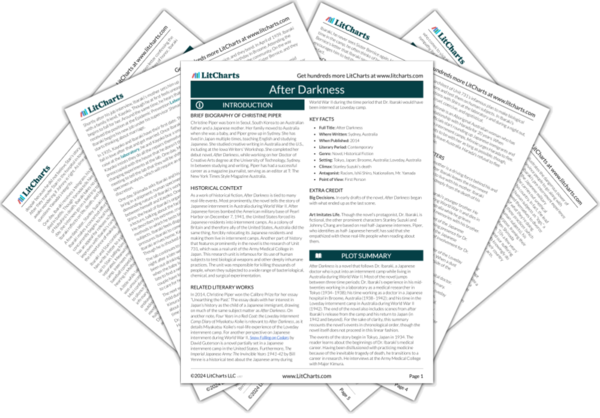The fact that Ibaraki organized the memorial service for Stan is a testament to the strength of their friendship and to Ibaraki’s growth as a friend, caretaker, and person. Officer McCubbin’s attendance at the service represents the solidarity that exists between himself and the internees. The collective actions at the ceremony of placing offerings, releasing dirt, and bowing highlights the power of community to come together and honor one of their own.
